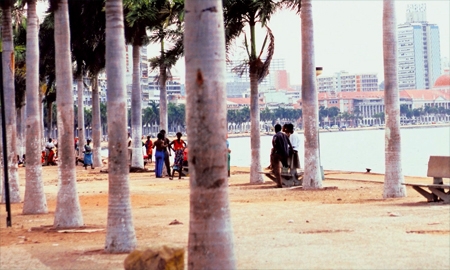In addition to oil, the country has timber, diamonds, gold, and many other valuable minerals.
Though wracked by a civil war that lasted from its independence from Portugal in 1975 until the end of hostilities in 2002, the country’s government has taken advantage of a decade of peace to work to improve the everyday lives of its citizens.
Since the end of the civil war, the United States has been an enthusiastic partner in helping the country develop its resources and provide Angolans with better lives. The U.S. has given Angola hundreds of millions of dollars in aid for health, disease control and food programs, and high officials from both countries have exchanged visits on multiple occasions.
Thanks to the wealth generated by its oil reserves and by international investment, Angola’s economy has grown rapidly in the years since the end of the civil war. The economy expanded 3.4% in 2010, a year marked by recessions and economic crises in other parts of the world, and it grew 3.5% last year. The non-oil economy grew more than twice as quickly in 2011, at 7.7%.
This year total gross domestic product is expected to expand even faster than in 2011, at a pace of 8.2%. That expansion is helped by large and growing government investment in Angola’s infrastructure, including roads, ports and airports, all of which create jobs and ease the flow of goods and people around the country.
The governing MPLA party was just re-elected with 73% of the vote, returning President Jose dos Santos to power for another five-year term. The party’s share of the vote declined from 80% in the previous election, while the main opposition UNITA party saw its share of the vote double to 18%.
Observers from the Community of Portuguese Language Countries called the vote free and transparent, another sign that the country’s democracy is stable and well established and that Angola is a place where Americans can do business.

0 COMMENTS